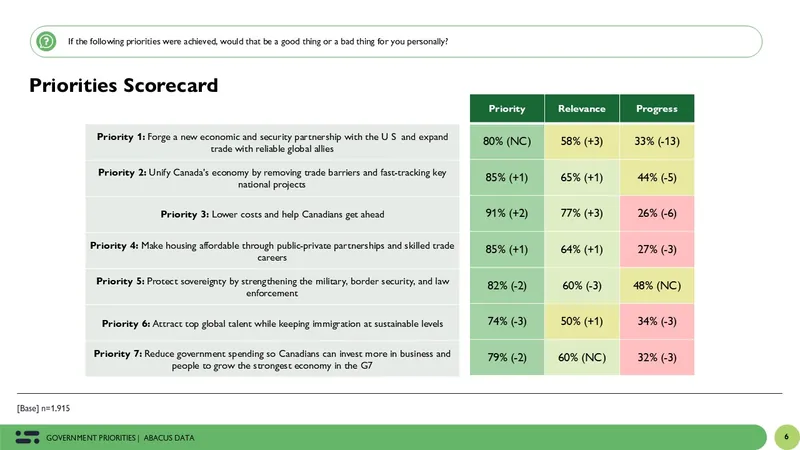
Mark Carney's Government Report Card: Public Sentiment on National Priorities
2025-09-04
Author: William
A Bold New Governance Approach
Since taking office earlier this year, Prime Minister Mark Carney has introduced a transformative method of governing, aiming to streamline the sprawling federal bureaucracy. Instead of issuing multiple mandate letters, Carney rolled out a consolidated list of seven national priorities to steer every department and minister.
The message was clear; Canadians are encouraged to evaluate this government not by the usual political rhetoric, but by its tangible progress on these key goals.
Public Engagement and Accountability
In this climate, understanding public perception becomes crucial. With specific priorities laid out, citizens can hold the government accountable. If people know what the government is targeting, they can better recognize achievements or failures.
Strong Initial Support for Priorities
Since inception, Carney's focused agenda has resonated well with the public. Recent polls reveal that all seven priorities still enjoy majority support among Canadians, with many seeing them as vital.
- 91% believe reducing costs and aiding Canadians in financial advancement should be top priorities.
- 85% back efforts to make housing more affordable.
- 85% support the unification of Canada’s economy by removing trade barriers.
Although more nuanced issues like trade partnerships still garner about 80% approval, immigration is less favored, though 74% still consider it significant.
Connecting Priorities to Daily Life
When asked how these priorities impact their lives, most Canadians express that lowering costs would personally benefit them (77%), with housing affordability and economic unity also ranking above 60%.
Interestingly, broader aspirations like trade partnerships and immigration see lower personal connection scores at 58% and 50%, respectively. Such a disconnect presents a key communication challenge.
Assessing Progress: A Mixed Bag
The real test lies in how Canadians perceive the government's actual progress.
Combining responses indicating 'on track' and 'ahead of schedule,' the results reveal: - 48% feel the government is making progress in protecting sovereignty, the highest rated priority. - 44% say the same for economic unification (down 5 points). - Alarmingly, only 26% believe affordability efforts are on track (down 6 points). - Just 27% are optimistic about housing initiatives (down 3 points). The steepest decline was seen in the U.S. economic and security relations, where only a third think progress is being made, a significant drop of 13 points.
Implications for the Carney Administration
With the Cabinet retreat looming, these numbers send a clear signal: while the government's agenda has robust support, the pressure is on to deliver visible results.
Progress perceptions are dwindling, particularly on affordability and housing—issues that are front and center for Canadians.
Final Insights: The Need for Action
In essence, clarity creates accountability, and Canadians expect the Carney government to uphold its commitments based on its clearly defined goals.
While the public still believes these initiatives can improve their lives, declining progress evaluations highlight a growing frustration. The upcoming fall season could be pivotal; decisive actions may shift the narrative—but only if Canadians start to witness meaningful changes.









 Brasil (PT)
Brasil (PT)
 Canada (EN)
Canada (EN)
 Chile (ES)
Chile (ES)
 Česko (CS)
Česko (CS)
 대한민국 (KO)
대한민국 (KO)
 España (ES)
España (ES)
 France (FR)
France (FR)
 Hong Kong (EN)
Hong Kong (EN)
 Italia (IT)
Italia (IT)
 日本 (JA)
日本 (JA)
 Magyarország (HU)
Magyarország (HU)
 Norge (NO)
Norge (NO)
 Polska (PL)
Polska (PL)
 Schweiz (DE)
Schweiz (DE)
 Singapore (EN)
Singapore (EN)
 Sverige (SV)
Sverige (SV)
 Suomi (FI)
Suomi (FI)
 Türkiye (TR)
Türkiye (TR)
 الإمارات العربية المتحدة (AR)
الإمارات العربية المتحدة (AR)